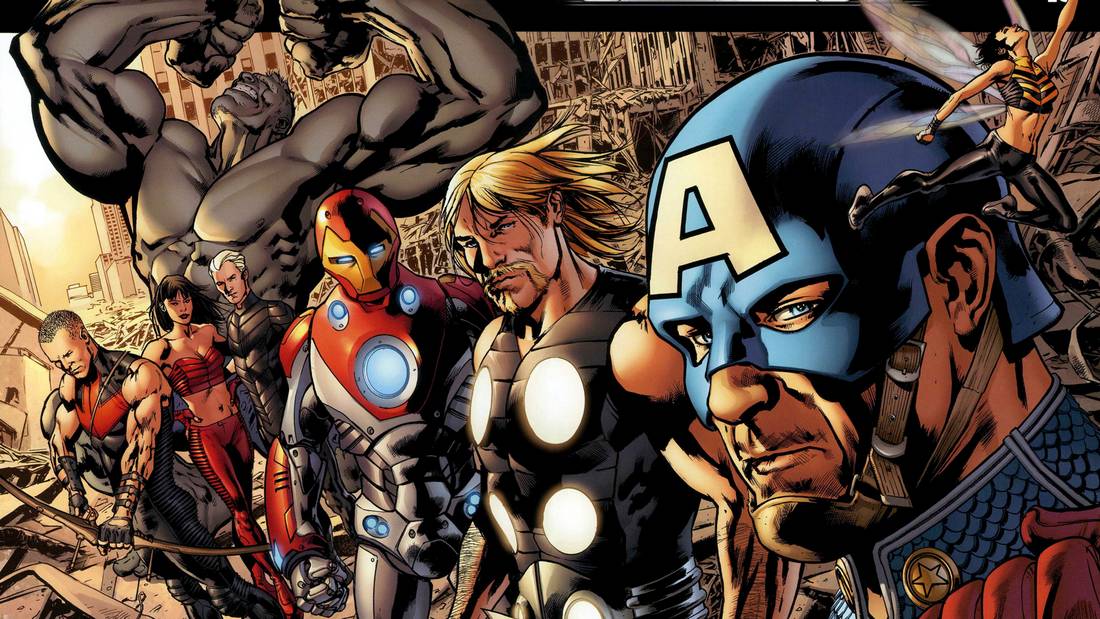I don’t read a large number of ‘modern’ Marvel comics, but many of my friends raved about “The Ultimates” in the past and I remembered its high profile when the original issues were coming out. When the opportunity arose to purchase a used copy of “The Ultimates” omnibus at a relatively low price, I jumped on it.
After reading the book, I found myself enjoying it far more than I thought I would, given my general distrust for the writing of Mark Millar. I’d not ever been a big fan of Mr. Millar’s work, as I found that his writing tended to be cruel or over-the-top simply for the sake of stirring the pot of public debate. He also gained a reputation for being a bit of a publicity hound over the years.
That said, I also couldn’t ignore the fact that Mr. Millar has been one of the highest-profile comic book writers of the 2000s due to his big ideas and he has obviously marketed himself brilliantly. Give or take a few controversial character ‘reinterpretations’ that I disagreed with, Mr. Millar did an admirable job with his writing on “The Ultimates”
The series started off with a bang by providing Captain America’s origin. Since the story took place in Marvel’s alternate ‘ultimate’ universe, Cap became the perfect anchor for the story. Readers became familiar with Mr. Millar’s reinvention of the Marvel Universe after Cap was unthawed in the ‘present day.’ The best emotional beats of the series always seemed to come through Cap’s fish-out-of-water moments.
As I said, Mr. Millar was generally respectful with his reinventions, but a few things seemed ‘off’ to me. First, the Hulk’s ‘horny’ rampages just seemed weird. That was an added kink to the character that wasn’t necessary. Also, the domestic abuse history between the Wasp and Ant-Man was appropriate to include, but Mr. Millar added a cruel twist to the actual abuse that made it less grounded than it needed to be. As a result, Ant-Man was portrayed as more of a ‘nut’ than seemed appropriate.
The biggest highlight of the entire omnibus was an the alien invasion by the Skrull-like Chitauri at the end of the first series. It had a cinematic, epic feel to it.
The second series was largely forgettable, other than the crazy twists involving several jarring deaths and a traitor or two. That story focused more on mischievous maneuverings by Loki and a takeover of the United States. From a scope standpoint, the series would have been better-served to have the antagonists flip-flopped between volumes, as the threat level didn’t feel quite as large. If anything, it all felt like the aftermath of the first half playing out over the entire second half of the omnibus.
An introduction to the first series that praised it for so effectively modernizing “The Avengers” was written by Joss Whedon. Mr. Whedon would later use many of Mr. Millar’s reinventions in his film version of “The Avengers.” The Chitauri also played a role in that film, albeit to a lesser degree than in the comic books.
Despite some reservations, I found myself pleasantly surprised to enthusiastically recommend “The Ultimates” omnibus. This was potentially ‘the’ book for Marvel in the 2000s and, after reading it, it was easy to see why it was so popular.
I have not read the third “Ultimates” series that followed the work in this omnibus. That series was not written by Mr. Millar and fans seemed to really dislike it. Fandom as a whole has chosen to focus on the first two series by Mr. Millar and forgotten about anything that came after them.
- “Masters of Doom” by David Kushner - December 16, 2023
- San Diego Comic-Con 2023 Analysis - July 29, 2023
- Star Wars: The Rise of Skywalker (2019) Reviewed - March 15, 2023
